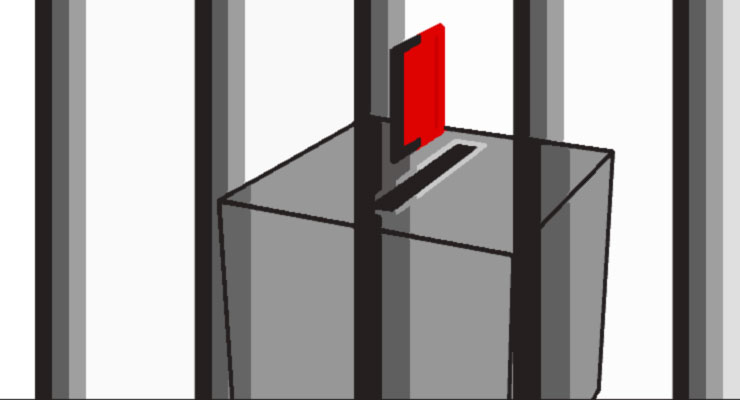
The latest news on this front comes from a really interesting article from the Herald Tribune by Dara Kam:
Whether felons who’ve completed their time behind bars or on probation should have their voting rights restored if they haven’t paid off all of their financial obligations has become a flash point as lawmakers grapple with carrying out a November constitutional amendment.
Rep. James Grant, R-Tampa, has crafted a bill that’s shot him into the national spotlight, infuriated advocates of the amendment and spawned hundreds of phone calls and emails to legislators urging them to kill the proposal.
The constitutional amendment, which appeared on the November ballot as Amendment 4, granted “automatic” restoration of voting rights to felons “who have completed all terms of their sentence, including parole or probation.” The voter-approved amendment excluded people “convicted of murder or a felony sexual offense.”
Grant’s definition of what it means to have completed sentences has created the firestorm.
See the full story here. At this point, those against felon voting rights are ignoring the basic historical facts about the origins of the legislation in America. On top of this, by making felon voting illegal they are saying they want a government policy that sends a message that even a lifetime of attempted redemption and good deeds can’t erase a past error, even a small one. The truth is that felons have as much right as any other citizen to cast votes. Denying them this right is discrimination of the first order.
There are approximately 1.7 million Floridians whose right to vote has been stripped away: ex-felons. The disenfranchisement of felons in the state has silenced the voices of such a huge number of citizens that it impacts the balance of power in Florida and beyond. The latest news comes from a really interesting Orlando Sentinel article by Gray Rohrer:
A push by Florida Republicans to require ex-felons to pay all fines and restitution related to their sentence before getting their right to vote back is being denounced by Democrats and activists as a “poll tax” reminiscent of Jim Crow laws.
Republicans, meanwhile, argued fines and restitution were always considered to be part of the sentences felons had to complete, citing court arguments by voting rights advocates themselves. A Senate panel passed its version of the bill (SPB 7086) by a narrow 3-2 vote Monday, with Republicans in favor and Democrats against.
“I’m like a citizen again except that I still can’t vote,” said Karen Leicht, an ex-felon who served two years in federal prison for insurance fraud. “What am I if I can’t vote as a citizen in this country?” she added, likening the bill to a poll tax.
See the full story here. The restoration of felon voting rights is a controversial reform but the truth remains that mass incarceration and disenfranchisement is tied to the nation’s unique history of slavery. The Brennan Center for Justice at New York University’s School of Law has summarized the state of felon voting in Florida as follows:
Florida has the highest disenfranchisement rate in the country. It is one of three states, along with Iowa and Kentucky, to permanently bar all citizens with felony convictions from voting. Currently, Floridians can only regain the ability to vote if they individually apply to the state Office of Executive Clemency and their application is one of the few granted. The amendment would give Floridians who have already served their time a second chance at democratic participation.
Leave a Reply